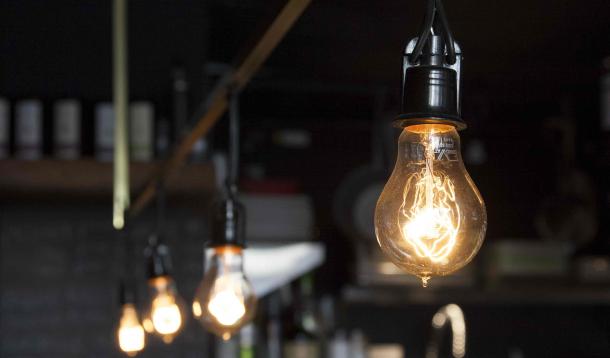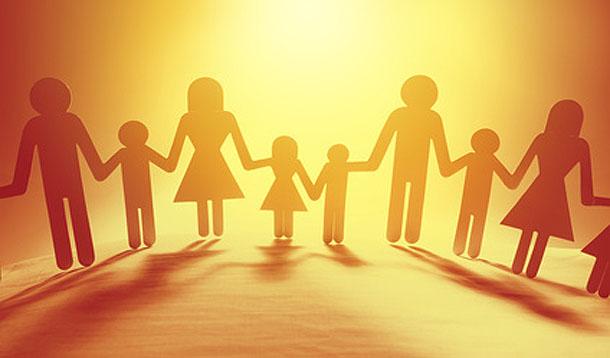
I try my best to teach my kids to respect the environment. I’m not a treehugger by any means, but I do everything I can to ensure my kids understand the value of protecting the natural world. I recycle, I compost (overcoming my utter disgust with maggots), I do my best to make my home energy efficient, and I’m constantly investigating new ways to reduce my impact on the environment.
One thing I didn't do however was to turn off my lights for Earth Hour.
That’s right, the gold standard for token environmentalism wasn't recognized in my home. Do I hate the Earth? Am I a climate change denier? Nope. For me the reason is simple: Earth Hour does little to support the environment and actually promotes a lot of unhelpful ideas about protecting the planet.
The act of shutting off your lights for an hour may sound like a powerful gesture, but it does relatively little to help the environment. Power grids are complicated systems that don’t just flick off and on like a light switch. Even if the entire planet shut down, the system can’t just shut off, it has to be on stand by at all times to provide the power our planet needs to function. Of course many will say that the purpose of Earth Hour is awareness, but the problem is that we are focusing on the wrong issue. There is nothing inherently wrong with electricity. Electricity is marvel of human ingenuity and the backbone of our civilization. Electricity isn’t dirty or clean, it’s a natural phenomenon that humans have managed to harness. There is nothing artificial about it. The act of shutting off the lights teaches kids that electricity is the issue when, in fact, it’s the method of generating that electricity that should be the focus. If your house runs on solar power should you turn off your lights? What if your energy comes from hydroelectric as most of Quebec does? Earth Hour has the focus all wrong, and can confuse kids by making them think electricity is bad.
There are over one billion people on Earth without access to electricity at all. For them, the idea that people in the developed world would vilify the source of their light, heat, clean water and cooking power must seem bizarre. Do you know what people without electricity do to keep warm, create light, boil water and cook their meals? They burn carbon, and much less efficiently than we can. When we talk about climate change the focus is often on oil, but the real culprit is carbon from any source. Whether you’re burning oil, gas, wood or dung you’re releasing carbon into the atmosphere. Whereas modern electricity systems are very efficient at turning carbon into power (and that doesn’t even include the green sources that don’t burn carbon at all), burning wood, paper or dung on a fire to stay warm is highly inefficient, and toxic.
![]() RELATED: The Thing You're Forgetting to do After Earth Hour
RELATED: The Thing You're Forgetting to do After Earth Hour
For the billions who still burn carbon the old fashioned way, electricity isn’t just a nice thing to have, it saves lives. Millions in the developing world die every year from smoke inhalation because they burn carbon indoors to keep their family warm or cook a meal. These families would give anything to have the one hour of electricity we’re giving away in the developed world.
So what should we do? Well, rather than sitting in the dark for an hour (presumably with your electric-powered furnace still on), why not talk to your kids about real solutions? Do you compost yet? I’m in the minority on my street every garbage day when I take my compost bin to the curb. How about researching ways to make your home more energy efficient. Something as simple as remembering to shut off the lights every time you leave a room can make a much bigger impact that one hour of one day sitting in the dark. If you want to think really big, why not investigate getting some or all of your power from renewables. Solar panels are dropping in price and improving in efficiency every day, however something as simple as buying green energy credits can help fund the development of new renewable sources and contribute towards lowering costs in the future.
The bottom line is that Earth Hour is a concept with a noble goal but it gives off all the wrong messages. If we’re going to start to wean ourselves off carbon-based energy, we have to understand the connection between our actions and real results. It’s too late for token gestures that make us feel good and give the illusion that we’re making an impact. Teaching kids that electricity is the problem not only misses the point, it does a tremendous disservice to all the positives it has brought us. Electricity keeps our food fresh, heats our homes, lights our schools, powers our hospitals, and saves millions of lives every year. I want my kids to grow up respecting the Earth, but I also want them to have respect for the advancements our society has built that make us safer, healthier and more prosperous than at any point in human history.

As a dad, the role of protector has changed a lot since the days when sabre-toothed tigers were a constant threat.
Today's threats to children are more insidious: out of control teen celebrities, teenage vampire movies, and yes, viruses and diseases. Here's the thing though, while protecting your kids by getting them vaccinated is the best way to ensure they stay healthy, even more important is the benefit they have on those around you. But that benefit isn't just a nice side effect, it's actually the entire point of the vaccine.
Humans have lived in groups ever since we came down from the trees. We hunted together, sought shelter together, and raised children together. However, while we were doing all this our bodies were doing something else, learning how to adapt to a plethora of new viruses, bugs and bacteria. It was pretty ineffective at first, humans died by the millions, but eventually we figured something out...
It turned out that people who caught a virus and managed to survive were less likely to get the same virus in the future. Our bodies had learned how to adapt. That's the essential value of vaccination, it simply replicates a process that the human body would typically have to go through on its own, at great personal risk.
When discussing vaccinations, we hear a lot about the concept of herd immunity, the idea that by vaccinating as many people as possible we can more effectively protect those who can't get vaccinated (like infants). Ask anyone from an older generation about herd immunity; in their day it was acquired the hard way, and not without casualties - it came with sickness and death that immunized only the survivors against future outbreaks.
As parents, we feel like we only have a responsibility to our own kids - our own family - but the fact is that as part of a greater society, we have a responsibility to everyone. It’s the same reason we don’t litter, the reason we have traffic rules, even the reason we have indoor plumbing- the understanding that in exchange for a safe and productive society we have to follow certain rules to protect each other. Unless you’re going to go live off-the-grid in a shack in the woods, you owe certain things to the rest of society to ensure everyone is safe.
Unless you or your child fit into the very narrow category of doctor-validated reasons to avoid vaccination, your compliance is a sign that you respect the rights, freedoms and societal safety net that Canada provides for you. We owe it not just to our kids, but to each other to get vaccinated.
This clash of personal and societal rights is something we don’t talk about much because we take our freedom and relative safety for granted. It’s overly simplistic to think that your role as a parent is just to protect your kid. Your child lives in a greater society and many of the things that help make it safer have absolutely nothing to do with you on a day-to-day basis, that doesn’t make them any less important.
You may never interact with the justice system in your life but it exists to protect you. Your interaction with food may be restricted to a fast-food menu, but there’s a system behind the scenes ensuring your bacon cheeseburger is fit for consumption. That’s what society does for us, it asks us to trade in a small part of our individual freedom for a whole bunch of collective safety.
In my family, I have the joyful task of being “the holder” during vaccinations. You know, the one who has to keep the child’s arms steady and prevent them from trying to escape while getting the needle. It’s not a fun job, it’s not something I enjoy doing, but I understand the importance of it for both my kids and society in general.
We don’t hunt woolly mammoth together anymore, but we do live in a society where we rely on each other for protection and benefits. The minute we forget just how lucky we are to live in a society where the perils of infectious disease are considered benign enough to become the focus of a party we are forgetting our roles as protectors of the herd. Part of that protection plan is making sure everyone is vaccinated - a program with perhaps the best ratio of risk to reward on the planet, because vaccines are ridiculously safe and come with decades of peer-reviewed scientific research backing them up.
So when you’re buckling your kid up in their car seat, remember that the risks you take every day are only possible because you have a system protecting you, and getting your kids vaccinated is the least you can do to show your appreciation.
Getting your family immunized is an important part of creating a foundation for a healthy life. If you’re on the fence about immunizing, here’s the information you need to make an informed decision for your family.
![]() Erica Ehm talks with Ontario’s Chief Medical Officer to get straight answers about immunizations
Erica Ehm talks with Ontario’s Chief Medical Officer to get straight answers about immunizations
![]() How we can increase vaccination rates and protect our kids
How we can increase vaccination rates and protect our kids
![]() Five important reasons this Pediatrician vaccinates not only your kids, but hers too
Five important reasons this Pediatrician vaccinates not only your kids, but hers too